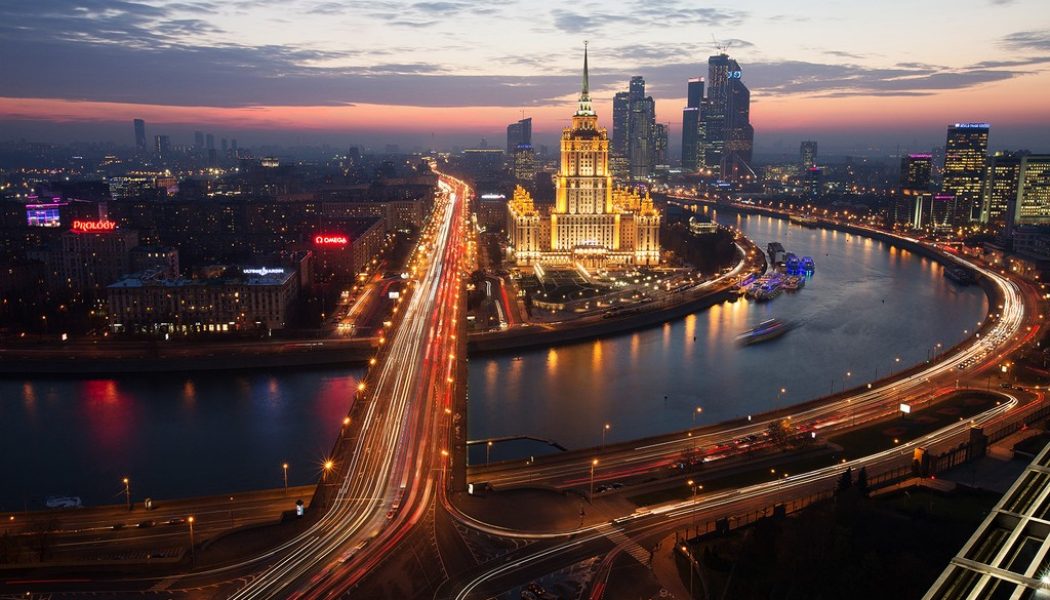
The streaming service has announced an expansion into 13 new markets, reaching potentially 250 million new users — if only it can sign them up.
Spotify is launching its streaming service in Russia and 12 other countries in Europe, marking an important expansion that will bring the music streamer to nearly 250 million new listeners and effectively blanket Europe with the service.
In addition to Russia, the 16th-largest streaming market, Spotify will push into Albania, Belarus, Bosnia and Herzegovina, Croatia, Kazakhstan, Kosovo, Moldova, Montenegro, North Macedonia, Serbia, Slovenia and Ukraine.
The launch comes as the digital streamer has been expanding aggressively into new markets. It introduced the platform in India in 2019; in 14 markets in the Middle East and Africa in 2018 (including South Africa); and in Vietnam in 2017. With the new European countries, Spotify will be operating in 92 total markets across the world.
Spotify CEO Daniel Ek highlighted Russia in a recent conference call as a market — along with South Korea — that the company planned to expand into soon.
The next few years for Spotify are going to be dominated by an effort to drive subscriber growth in emerging markets, says Mark Mulligan, managing director at MIDiA Consulting. “Although this will mean a continued erosion of ARPU [average return per user] it knows that as Western markets mature it needs emerging markets to drive the subscriber growth its investors expect. Russia fits this model.”
The Russian music market, the 17th-largest overall, was the fastest-growing in the world in 2019, up 50.3% to $171.7 million in revenues, according to the IFPI. It is poised for strong growth. Streaming revenues jumped 76% to $134.1 million in 2019. And it had 7.5 million subscribers in the first quarter of 2020, Mulligan says.
Russia is on pace to be the 10th-biggest streaming market by 2030. More than 87% of listeners in Russia can now access music through streaming. More than 61% of the world has adopted streaming, including 68% of U.S. music consumers, Spotify says.
“Launching in these 13 markets is an important moment in Spotify’s journey, especially as we welcome fans and artists in growing music markets like Russia, where streaming is being widely adopted and where we see a significant opportunity for Spotify,” Gustav Gyllenhammar, Spotify vp markets and subscriber growth, said in a statement.
With the launch on Tuesday, Spotify says it is introducing 200 new playlists featuring artists from across the 13-country region to fans around the world. In Russia, Spotify is adding almost 100 playlists, including curated lists like Hip-Hop Cannon and New Music Friday Russia, and “This Is” playlists featuring Russian pop stars. Personalized Spotify playlists like Release Radar, Daily Mix and Discover Weekly, which are informed by the listening habits of individual fans, will also now be available in Russian.
Spotify’s launch in Russia, which has been long-delayed, comes as the country’s streaming landscape has been maturing locally. Spotify originally planned to launch in Russia in early 2015. Back then, it opened a Russian office and hired a regional director. The company eventually scrapped its plans, blaming the economic downturn, which was caused by international sanctions slapped on Russia following the annexation of Crimea from Ukraine, and a personal data law, which came into effect in September 2015.
At the time, Spotify would have faced little competition. But now, the market is largely divided among local players, such as Mail.Ru Group’s Boom, VK Music (over 2.5 million paid subscribers in total) and Yandex Music (over 3 million paid subscribers). Apple Music, which launched in Russia in mid-2015, hasn’t revealed its subscriber numbers but is believed to be substantially behind the major local players in the number of subscribers.
Still, while growing, the Russian streaming market is not yet considered mature, Mulligan says. “Subscriber penetration is just 5%, which is nearly half that of Brazil, which is still seen as a major long-term growth market for Spotify,” he says.
It’s not clear how actively Spotify is going to promote its services in the Russian market. For instance, Netflix has kept a low profile since its Russian launch in 2016 and few people are aware the service operates in Russia.
Spotify’s share price has risen by more than 70% in 2020, which has led analysts to value the company at more than $41 billion.
Even as it pushes into emerging market, Spotify is betting podcasts will help turn the platform into a one-stop-shop for audio, whether music or voice. In May, the company signed an exclusive licensing deal for the Joe Rogan Experience podcast reported to be worth $100 million. Then in June, Spotify landed exclusives with Kim Kardashian West for a podcast on criminal justice reform and an exclusive deal with Warner Bros. to create original, scripted series for DC Comics superheroes.










